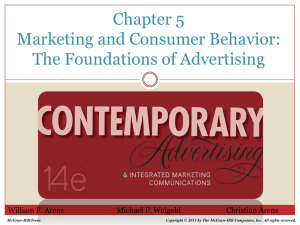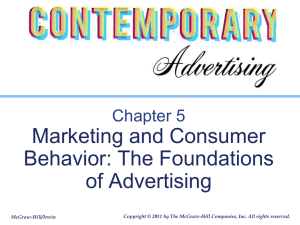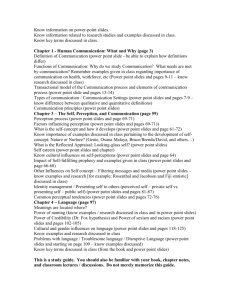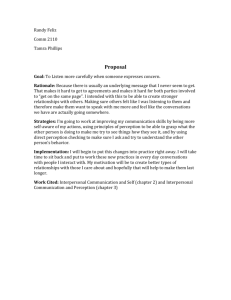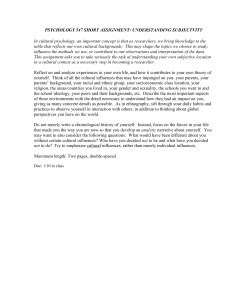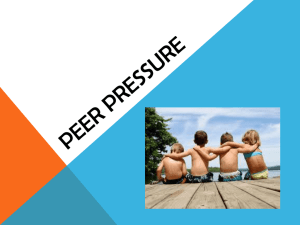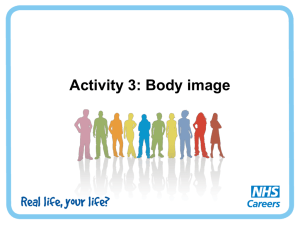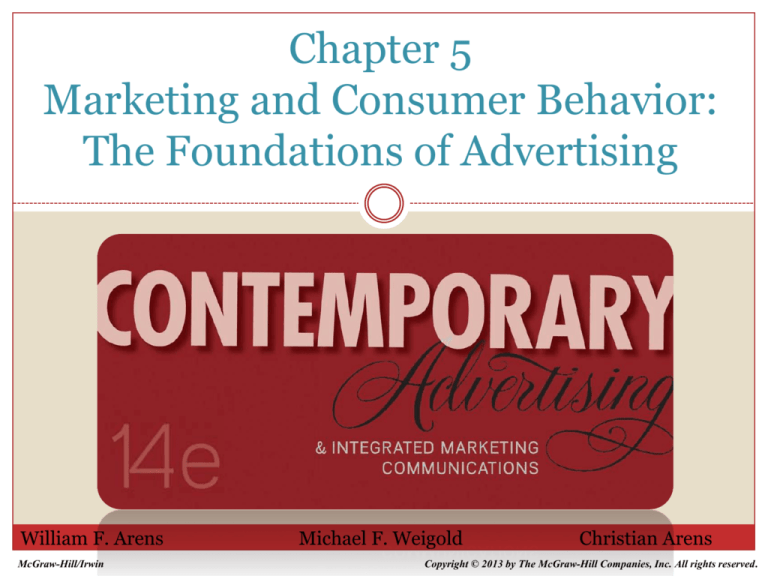
Chapter 5
Marketing and Consumer Behavior:
The Foundations of Advertising
William F. Arens
McGraw-Hill/Irwin
Michael F. Weigold
Christian Arens
Copyright © 2013 by The McGraw-Hill Companies, Inc. All rights reserved.
George Whitefield (1734-1770)
Chapter Overview
The relationship
between marketing
activities and
consumer behavior
5-3
Chapter Objectives
Define marketing &
relate consumer needs
and product utility
Identify key participants
in the marketing process
Explain why consumer
behavior is to IMC
strategy
Describe motives behind
consumer purchases
Outline the psychological
processes in human
behavior
Discuss interpersonal
influences
on consumer behavior
Explain nonpersonal influences
on consumer behavior
5-4
Know the Consumer
Consumer behavior —
the mental and emotional
processes and the physical
activities of people who
purchase and use goods to
satisfy needs and wants
5-5
Marketing Context of Advertising
Marketing
Conception
Pricing
Promotion
Distribution
Advertising
5-6
Q. 1. What are the key concepts in
Marketing?
Customer Needs / Product Utility
Need Satisfaction
Functional
Needs
Utility
Psychological
Wants
5-8
Goal of Marketing & Advertising
Perception
Exchange
Satisfaction
5-9
Q. 2. Who are the participants in the
Marketing process?
Marketing Participants: Customers
Current
customers
Prospective
customers
Centers of
influence
Total
Market
5-11
Market Types
Consumer
Business
Government
Local
Regional or National
Transnational or Global
5-12
Marketing Participants: Market
Customers
Markets
Marketers
5-13
Q. 3. What are the steps in the decision
making process?
Consumer Decision Process
5-15
Q. 4. What are the three components
of the Personal Process in consumer
behavior?
Consumer Decision Process
5-17
Nehemiah
Nehemiah’s Prayer
Nehemiah
Rebuilding the Wall
The Wall Finished
Q. 5. Define Perception.
Perception
Perception — information we receive
through our five senses.
5-24
Q. 6. What are the key elements in the
perception process?
Consumer Perception Process
5-26
Persuasion
Persuasion — change in belief, attitude,
or behavioral intention is caused by
promotion communication
5-27
Elaboration Likelihood Model
5-28
Q. 7. Define Learning.
Learning
Learning — relatively permanent change
in thought process or behavior that occurs
as a result of reinforced experience.
5-30
Q. 8. What are the two theories in
Learning?
Learning Theories
Cognitive Theory
Conditioning Theory
5-32
Q. 9. What are the effects of learning?
Results of Learning
Loyalty
Habit
Interest
Attitude
5-34
Consumer Motivation Process
Motivation:
underlying forces
driving decisions
Needs, basic &
instinctive
Wants, learned
during lifetime
5-35
Q. 10. What are the five stages in
Maslow’s hierarchy of needs?
Maslow’s Hierarchy of Needs
5-37
Consumer Motivation
Rossiter & Percy’s
Fundamental
Motives
Negative Motives:
problem removal or
avoidance
Positive Motives:
benefit, bonus, or
reward
5-38
Q. 11. What are the interpersonal
influences on consumer behavior?
Influences on Consumer Behavior
Interpersonal
Family
Culture and
Subculture
Society – Groups we belong to,
people we relate to,
and people we trust
5-40
Influences on Behavior
U.S. Army ad
focused on a
Spanish- speaking
audience
5-41
Q. 12. What are the nonpersonal
influences on consumer behavior?
Influences on Consumer Behavior
Nonpersonal
Time
Place of Sale
Environment
5-43
Influences on Behavior
Red Cross ad
focused on its
presence during
an earthquake
disaster
5-44
Purchase Decision
Evoked Set:
Evaluative Criteria
Smart Phones
• iPhone
• Android
• Blackberry
• Features
• Style
• Cost
• Service
Cognitive Dissonance
• Was it worth the money?
• Does the data plan work for me?
• Could I have found a better price?
5-45

